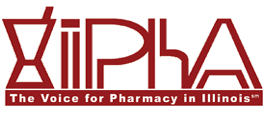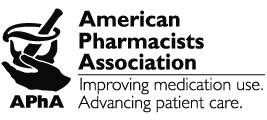Recent Blog Posts
Preparing for a DEA Pharmacy Audit
 The Drug Enforcement Administration (DEA), which was established in 1973, is the federal agency that is responsible for the enforcement of laws and regulations related to narcotics and controlled substances. Pharmacies and other businesses that administer, dispense, or supply controlled substances are required to register with the DEA.
The Drug Enforcement Administration (DEA), which was established in 1973, is the federal agency that is responsible for the enforcement of laws and regulations related to narcotics and controlled substances. Pharmacies and other businesses that administer, dispense, or supply controlled substances are required to register with the DEA.
Periodically – and at random – the DEA will conduct an inspection of a pharmacy in order to ensure the pharmacy is compliant and following required regulations under the Controlled Substances Act (CSA). These inspections – referred to as audits – typically take place every three years or so. However, there are situations where the DEA may decide to conduct an audit, such as receiving information of potential irregularities.
If you have been notified that your pharmacy is under a DEA audit, the following steps can help you prepare.
What Every Medical Professional Should Know About the NPDB
 In 1986, Congress passed the Title IV of Public Law 99-660, the Health Care Quality Improvement Act. Included in the law was the establishment of the National Practitioner Data Bank (NPDB), which serves as a federal repository of health care providers in the U.S. The law requires reporting of any hospital, licensure, or professional society actions against doctors, dentists, and other healthcare professionals. It is important for any healthcare professional to be aware of the NPDB and what may be required of them.
In 1986, Congress passed the Title IV of Public Law 99-660, the Health Care Quality Improvement Act. Included in the law was the establishment of the National Practitioner Data Bank (NPDB), which serves as a federal repository of health care providers in the U.S. The law requires reporting of any hospital, licensure, or professional society actions against doctors, dentists, and other healthcare professionals. It is important for any healthcare professional to be aware of the NPDB and what may be required of them.
What Type of Information Is Reported to the NPDB?
Under the law, the following information is required to by reported to the NPDB by specific health care entities:
-
Any medical malpractice payments made on a healthcare professional’s behalf, including out-of-court settlements
Defending Your Illinois Medical License Against Allegations of Drug Addiction
 Last year, Hulu produced the limited series, “Dopesick.” The show revealed how the opioid epidemic that has gripped the U.S. started and how it has affected people. One of the characters in the show, Dr. Samuel Finnix, is a doctor in a small town who is persuaded by an OxyContin salesperson to prescribe the drug to his patients. Not only do many of his patients become addicted to the drug, but the doctor also develops an addiction. Sadly – although the character is a fictional one – he is based on many true-life stories that have found themselves in the same place the character does.
Last year, Hulu produced the limited series, “Dopesick.” The show revealed how the opioid epidemic that has gripped the U.S. started and how it has affected people. One of the characters in the show, Dr. Samuel Finnix, is a doctor in a small town who is persuaded by an OxyContin salesperson to prescribe the drug to his patients. Not only do many of his patients become addicted to the drug, but the doctor also develops an addiction. Sadly – although the character is a fictional one – he is based on many true-life stories that have found themselves in the same place the character does.
Addiction in Medical Professionals
According to national statistics, more than 100,000 medical professionals – including physicians, nurses, therapists, technicians, and other health professionals – are struggling with abuse or addiction to Oxycodone, Fentanyl, or other narcotics. One in 10 doctors will abuse or become addicted to drugs or alcohol during their career, while 20 percent of nurses struggle with some form of addiction.
Do Hospital Work Environments Create a High Risk for Nursing Errors?
 It takes strong dedication to be a hospital nurse. The majority work long shifts, with hours that go into the double digits, dealing with lack of sleep and heavy workloads, all while trying to provide patients with the best care possible. The hospital work culture can – and often does – leads to errors that can ultimately put a nurse’s license at risk.
It takes strong dedication to be a hospital nurse. The majority work long shifts, with hours that go into the double digits, dealing with lack of sleep and heavy workloads, all while trying to provide patients with the best care possible. The hospital work culture can – and often does – leads to errors that can ultimately put a nurse’s license at risk.
Hospital Work Culture
Several years ago, the Vickie Milazzo Institute in Houston conducted a survey of nurses throughout the country. The results found that most of them were overworked and stressed, as well as feeling underutilized and underappreciated.
More than half of the nurses surveyed said that the shifts they work make it impossible to get enough sleep during the week. Between the double-digit shift hours and the on-call availability they are required to work, it is not uncommon for a nurse to pull a 24-hour or even a 36-hour shift.
How a Plea Bargain Can Affect Your Illinois Professional License
 In many criminal cases, the person who has been charged will often enter into a plea agreement with the prosecutor’s office instead of going to trial and letting a jury decide their guilt or innocence. If it appears that the prosecutor has enough evidence to convict them, a defendant agrees to a plea bargain in order to receive a lesser sentence than what they would receive if convicted.
In many criminal cases, the person who has been charged will often enter into a plea agreement with the prosecutor’s office instead of going to trial and letting a jury decide their guilt or innocence. If it appears that the prosecutor has enough evidence to convict them, a defendant agrees to a plea bargain in order to receive a lesser sentence than what they would receive if convicted.
For most people, agreeing to a plea bargain will conclude the legal process for them. However, for a person who holds a professional license, agreeing to a plea bargain in a criminal case could jeopardize that license and their future.
Professional License Holders and Criminal Charges
The Illinois Department of Financial and Professional Regulation (IDFPR) oversees multiple state licensing boards, including medical, nursing, dental, and real estate. Not only do these boards address professionals who have been accused of improper business practices, but they also investigate those who have been charged with criminal offenses. If a board concludes that the professional violated the rules and regulations that the state requires of them, it has the authority to suspend or even permanently revoke that professional’s license and their ability to earn a living in their chosen profession.
Allegations That Can Place Your Psychology License at Risk
 It takes years of education, training, and dedication to become a successful psychologist in Illinois. Not only is there grinding coursework to get your degree, but there are also stringent requirements to obtain your license to practice in the state. Unfortunately, all it takes is one accusation of wrongdoing and a dedicated psychologist can find his or her career in jeopardy.
It takes years of education, training, and dedication to become a successful psychologist in Illinois. Not only is there grinding coursework to get your degree, but there are also stringent requirements to obtain your license to practice in the state. Unfortunately, all it takes is one accusation of wrongdoing and a dedicated psychologist can find his or her career in jeopardy.
All licensure issues are handled by the Illinois Clinical Psychologists Licensing and Disciplinary Board, which falls under the Illinois Department of Financial and Professional Regulation (IDFPR). If you have been contacted by the board that you are under investigation, contact an Illinois professional license defense attorney immediately.
What Types of Complaints Can Trigger an Investigation?
There are many reasons why a patient may file a complaint against a psychologist. Some of the most common allegations filed with the board include:
Issues That Can Result in Suspension of Your Illinois Professional License
 In every state in the country, there are certain professionals who are required to hold a professional license that is issued through the state. In this state, the Illinois Department of Financial and Professional Regulation (IDFPR) is the state agency that has regulation over all the different professional boards that issue these licenses and are in charge of oversight. Some of these boards include the Illinois Medical Board, Illinois Board of Nursing, Illinois Board of Pharmacy, the Illinois Dental Board, and Illinois Board of Clinical Psychologists/Social Workers.
In every state in the country, there are certain professionals who are required to hold a professional license that is issued through the state. In this state, the Illinois Department of Financial and Professional Regulation (IDFPR) is the state agency that has regulation over all the different professional boards that issue these licenses and are in charge of oversight. Some of these boards include the Illinois Medical Board, Illinois Board of Nursing, Illinois Board of Pharmacy, the Illinois Dental Board, and Illinois Board of Clinical Psychologists/Social Workers.
When there is an issue with a professional license holder, the board that issued that license will begin an investigation into the allegations made and then make a decision on what – if any – action should be taken against the license holder. The following are some of the more common reasons why investigations take place. If you have been notified that you are under investigation, contact an Illinois professional license defense attorney immediately.
New Federal Rules for Hospice Providers
 The healthcare industry faces an ever-growing mountain of rules and regulations issued by the federal government that must be followed. Failure to adhere can result in fines, sanctions, and even a suspension or revocation of an individual’s professional license or the facility’s operating license. As new requirements issued for hospices as a result of the Consolidated Appropriations Act of 2021 go into effect in the fiscal year 2022, it is critical to understand what those requirements are.
The healthcare industry faces an ever-growing mountain of rules and regulations issued by the federal government that must be followed. Failure to adhere can result in fines, sanctions, and even a suspension or revocation of an individual’s professional license or the facility’s operating license. As new requirements issued for hospices as a result of the Consolidated Appropriations Act of 2021 go into effect in the fiscal year 2022, it is critical to understand what those requirements are.
Why the Change?
These new rules were created as a result of the findings of reports filed over the past several years that examined the results of hospice surveys by accreditors and regulators that found that at least 20 percent of these hospices had serious deficiencies. Some of the deficiencies cited in one report issued by the U.S. Department of Health and Human Services Office of the Inspector General (OIG) in 2019 included organizations that failed to manage patients’ pain, failure to make home visits, and even cited one incident where a patient’s feeding tube was infested with maggots.
Have You Been Notified Your Medical Practice Is Under a ZPIC Audit?
 In the past 20 years or so, there has been a concerted effort by the federal government to crack down on the number of fraudulent claims that are submitted to Medicare by medical providers. One of the ways that the government prevents fraudulent claims is through prepayment audits. If your practice has been notified that you are the subject of a prepayment audit, you should contact an Illinois professional license defense attorney for legal assistance.
In the past 20 years or so, there has been a concerted effort by the federal government to crack down on the number of fraudulent claims that are submitted to Medicare by medical providers. One of the ways that the government prevents fraudulent claims is through prepayment audits. If your practice has been notified that you are the subject of a prepayment audit, you should contact an Illinois professional license defense attorney for legal assistance.
Zone Program Integrity Contactors
Prepaid audits fall under the bailiwick of the Centers for Medicare and Medicaid Services. The agency often employs Zone Program Integrity Contactors (ZPICS) to conduct these investigations into potential waste, abuse, and fraud. In some cases, ZPICS will use methods to mine the practices’ algorithms in an attempt to see if they can find any abnormalities in billing which could indicate fraud is taking place.
Defending Against HIPAA Violations in Illinois
 In 1996, the federal government passed the Health Insurance Portability and Accountability Act (HIPAA). The law was created to establish national standards to protect sensitive patient health information from being disclosed to any other party unless the patient consents. In order to implement the requirements of the standards, the HIPAA Privacy Rule was established. Entities that are subject to the Privacy Rule include healthcare providers, health plans, and healthcare clearinghouses. Violations of HIPAA can result in hefty civil fines and even criminal charges.
In 1996, the federal government passed the Health Insurance Portability and Accountability Act (HIPAA). The law was created to establish national standards to protect sensitive patient health information from being disclosed to any other party unless the patient consents. In order to implement the requirements of the standards, the HIPAA Privacy Rule was established. Entities that are subject to the Privacy Rule include healthcare providers, health plans, and healthcare clearinghouses. Violations of HIPAA can result in hefty civil fines and even criminal charges.
Examples of HIPAA Violations
There are a number of actions that could result in a violation allegation. These include:
-
The medical practice is a victim of a data breach.
-
The medical practice fails to dispose of patient medical records properly. For example, if the practice replaces electronic equipment, the old equipment hard drives are not erased.














